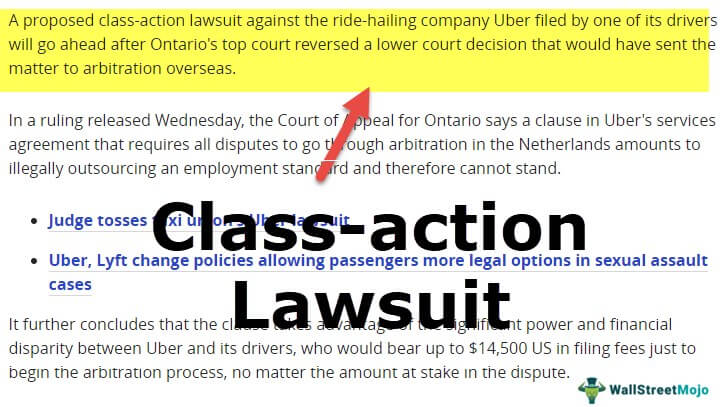Deciphering the Legal Web: Class Action Lawsuit Demystified
Deciphering the Legal Web: Class Action Lawsuit Demystified
Blog Article
Introducing the Reality Behind Course Action Claims: What You Need to Know
Class activity claims have come to be progressively widespread in our legal system, with prominent instances making headlines and recording public interest. However, behind the buzz and media frenzy, there lies an intricate internet of lawful intricacies that frequently go undetected. In this conversation, we will reveal the fact behind course action suits and give you with the information you need to navigate this legal landscape with self-confidence. From understanding the essentials of course activity claims to figuring out if you qualify to get involved, we will certainly dive into the crucial elements, advantages, and possible drawbacks of these lawsuits. Fasten your seatbelts as we embark on a journey to uncover the truth behind class action suits.
The Basics of Course Activity Legal Actions
Course activity claims give a way for a team of individuals with similar legal insurance claims to collectively seek justice and resolution in a single lawsuit. This sort of claim enables individuals who have been damaged or mistreated by an usual event to join forces and seek their claims with each other. It offers a efficient and economical means for a a great deal of people to look for payment or deal with disagreements without each person having to submit a separate legal action.
In a class activity suit, one or more people, referred to as the course representatives or called plaintiffs, submit a suit in behalf of a larger team of people that have experienced similar damage or have comparable insurance claims. These people should show that they have similar legal concerns or have been affected by the very same actions or policies of the offender. The court then licenses the suit as a class activity, allowing the course agents to stand for the rate of interests of the whole team.
Class activity legal actions are frequently made use of in cases involving consumer defense, work discrimination, product obligation, and securities fraud, to name a few. By settling similar insurance claims right into a solitary lawsuit, class actions can enhance the lawful process, avoid duplicative litigation, and make sure constant resolution for all participants of the class.
Crucial Element of a Course Activity Legal Action
To further explore the auto mechanics of class action claims, it is essential to analyze the crucial aspects that compose such lawful process. Among the key components is the visibility of a common question of law or fact. This implies that all members of the class must have suffered a similar harm or injury that can be dealt with with a single lawsuit. Without a common question, class certification may be denied.
Another critical aspect is the numerosity need. Class action lawsuit. In order for a course action to continue, there have to be an adequately huge number of potential class participants to make private suits impractical. While there is no details limit for numerosity, courts normally require a minimal variety of class participants, commonly in the variety of 40 or more
In addition, typicality is a crucial consider determining class qualification. The insurance claims of the class rep, who acts upon behalf of the whole class, need to be common of the claims of the other course members. If the agent's claims are not regular, it may show that the class is not natural enough to continue as a class activity.
Benefits of Taking Part in a Course Action Legal Action
Joining a course action suit gives individuals with the chance to jointly seek justice and go after economic compensation for common complaints. This form of lawsuit supplies several advantages to complainants that join forces with others in comparable scenarios.
Most importantly, joining a course activity lawsuit can level the playing straight from the source field for people that might not have the funds to go after a legal action on their very own. By pooling resources and sharing the expenses of litigation, class members can work with experienced attorneys and experts to represent their rate of interests properly.
In addition, class actions his comment is here can lead to efficiency and benefit for plaintiffs. Rather than filing private claims, which can be taxing and pricey, signing up with a course action allows individuals to consolidate their claims into one lawsuit. This streamlines the legal process, conserving time and sources for all celebrations involved.
Furthermore, course actions have the potential to cause systemic adjustment and hold corporations liable for their activities. By integrating similar claims into a single claim, class members can send out a strong message to defendants and deter future misbehavior. This cumulative action can help protect against more damage to individuals and culture at big.
Finally, taking part in a class activity claim provides a feeling of empowerment and uniformity (Class action lawsuit). It enables people to find together and battle for justice as a unified group, amplifying their voice and raising the opportunities of a beneficial outcome
Possible Disadvantages of Course Activity Lawsuits
While there are substantial advantages to participating in a class action visit their website claim, it is important to consider the potential drawbacks. In a class action suit, the lead plaintiff is accountable for making choices on part of the whole class.

Furthermore, course action lawsuits can lead to relatively tiny private payouts for class participants. This is since any negotiation or judgment is divided amongst all class participants, which can water down the quantity each private obtains. In some cases, the prices of going after the lawsuit might outweigh the prospective advantages.
Finally, course action legal actions can be challenging to navigate for people who are not accustomed to the legal procedure. The intricacies of the situation, in addition to the requirement to collect proof and meet numerous deadlines, can make it tough for course members to completely understand and take part in the suit.
Just How to Identify if You Qualify for a Class Action Claim

Once you develop that you are a member of the class, you must likewise demonstrate that you have endured damage or problems as a result of the accused's activities. This might consist of physical harm, monetary loss, or other kinds of injury. The harm or problems should be straight connected to the defendant's supposed wrongdoing or neglect.
Furthermore, it is necessary to note that each course action suit may have certain demands and criteria that need to be fulfilled. These can vary relying on the nature of the situation and the territory in which it is filed. It is suggested to speak with a lawyer who focuses on class action legal actions to identify if you certify and to guide you with the procedure.
Conclusion
In verdict, class action suits supply an opportunity for people to join together and seek justice for shared complaints. On the whole, recognizing the essentials and vital components of course activity suits is necessary in figuring out whether involvement is useful in seeking legal solutions.
In a course action suit, one or more people, recognized as the course agents or named complainants, submit a suit on behalf of a bigger group of people that have suffered comparable damage or have similar cases. Class action lawsuit. In order for a course action to continue, there need to be an adequately large number of possible class members to make specific suits impractical. The cases of the class rep, who acts on part of the whole course, should be regular of the insurance claims of the other course members.Furthermore, course action legal actions can result in fairly small specific payouts for course participants. Typically, to qualify for a course action claim, you should be a participant of the affected course, have experienced harm or damages, and have comparable insurance claims to the other participants of the class
Report this page